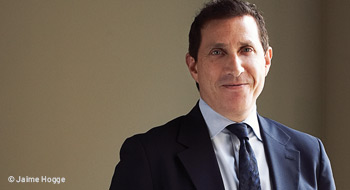

When interviewed, Michael Worb jumps right into the driver’s seat by posing his own questions. An inclination to be both sociable and take charge is not a bad thing when you’re a chief executive in the business of consulting with mid-size firms on how they can best offer their employees benefits and retirement coverage.
One of the things Worb takes the most pride in is that his boutique consulting firm, Pal Benefits Inc., has built a reputation over its 15 years of operation for being agile and capable of solving business issues faster than some larger firms. “We don’t bring in a SWAT team to pitch an account and then bring in a whole new team—it’s not the way we work,” he says.
Case in point: Worb recently led his team to New York to pitch a potential client—an organization looking to consolidate benefits plans after being involved in a merger. A large consulting firm was also invited to pitch. Worb imagines the competition’s plan might have been to “take notes, leave the meeting, deal with it internally, send a few emails around, have some meetings internally, have some more discussions and get a memo out within a couple of weeks.”
In contrast, Worb’s team, which included an actuary and a writer, spent the day developing the strategy and pricing. “By 5 o’ clock we had the plan, and on the flight home we had the email back,” confirming that Pal had won the business, he remembers. Worb says the client’s senior vice-president thought that Pal’s approach was unique and that the consulting firm delivered a level of quality it was hoping for.
Worb’s obsession with creating a customer service-driven operation likely stems from his early stomping ground. Armed with a commerce degree and an entrepreneurship award from the University of Manitoba, Worb initially sharpened his skills with 10 years of service at London Life (now Great-West Life). In 1997, he joined forces with Joe Pal, an insurance advisor for estate preservation, tax planning and charitable structures, and Pal Benefits began to take shape. Even then, Worb knew that a boutique business model would foster a “smart, creative and very nimble” environment where hand-picked talent could perform at their peak.
“I don’t think things have changed over the years. We’re clear about our value proposition—what it means to work here and the kind of person who will thrive in our company. But not everybody thrives here,” says Worb about his staff and would-be candidates who are put through a lengthy interview process—a courtship that, by some accounts, includes as many as 11 interviews.
“Our clients are demanding more—more creativity, more work for less money, more support. So our approach is to provide the right talent, and to provide the brightest thinkers to our clients,” explains Worb of Pal Benefits, which today has a full-time staff of 25 serving more than 300 clients across Canada and the U.S.
In November 2011, Worb acquired Joe Pal’s share of the business, a change that is in keeping with the company’s succession plan, which includes growing the business. And because building a strong and sustainable business includes nurturing the best talent, the team at Pal plans to mentor an intern chosen from the University of Waterloo in the new year, who will work in the company’s retirement practice. Asked about what skills he’s looking for in an intern, Worb says he wants someone who’s not afraid to question the company’s processes and suggest improvements.
“We’re busy, but we don’t like to skip a beat.”
Rehana Begg is editor of Benefits Canada. rehana.begg@rci.rogers.com
